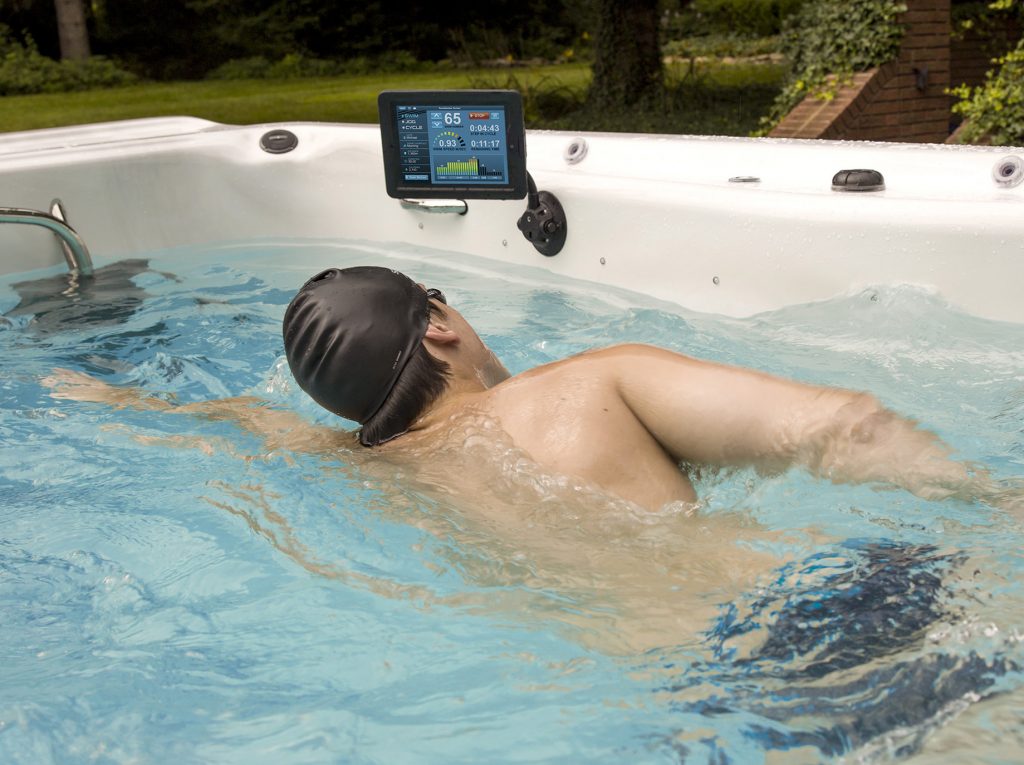by Jay Jarden
On October 20, I completed another Half-Ironman: swimming 1.2 mile, running 13.1 miles, and biking 56 miles. I met all my target times, finishing the race in 6.6 hours. One of the first people I wanted to thank was my Ironman Coach, Jim Kelley of PR Endurance. For the past 4 years or so, he’s helped me with everything from mapping out my upcoming race schedule to putting together my weekly training regimens.
Success in triathlon races, like the Ironman competitions, is definitely about how hard you work, how well you plan, and how dedicated you are to meeting your goals. But it’s almost just as much about what kind of partnership you develop with your personal trainer. You need the tools (like a great mountain bike and probably a quality swim spa), as well as someone to instruct and motivate you to use them regularly and effectively.
Here are some of my personal pointers for choosing the right Ironman coach.
Find a Coach Online
Maybe there’s a highly qualified training coach that you’ll get along splendidly with who lives 2 miles away. Probably not. Choosing a coach online opens up so many possibilities that you just don’t usually have locally. Choosing a coach online doesn’t just mean you have lots of potential coaches to choose from, it also means you don’t have excuses like, “Traffic was too bad to meet this week.” You also have access to online reviews, so that you know what their current and previous clients have to say about them. Online coaches give you flexibility, because you don’t have to meet up at any certain place or time. You can stay in touch with your instructor during a business trip, on vacation, and during the hectic workweek.
Ask About Certifications
The types of races you want to run should determine what types of certifications to look for. For instance, my own personal trainer is Ironman certified, or USTA. There are various certifications trainers can achieve, according to which types of athletes they train — from cross-country skiing to swimming to running — you name it. But certification is more than just matching the athlete to the training suitable for the races they want to run. When a coach has taken the time to achieve multiple certifications across disciplines, you know you’re dealing with a serious professional, and not just someone who thought they’d make some extra cash by training online. By all means, check with the issuing organizations to make sure that the trainer actually holds the certifications they claim. Anyone can slap up a website and stick “USTA Certified” on the website. Make sure the issuing organizations recognize the individual or their company.
Discuss a Realistic Training Regimen
Having established goals is the absolute best way to stay on track. It’s one thing to say, “I’m working out today to improve my fitness,” but when you actually schedule a race 6 months from today, that clock is always ticking in the background to keep you motivated and on track! Training for races, like the Ironman, means training for three separate disciplines: swimming, running, and biking. But a good trainer will not limit your training to the skills of the race. You also need strength and endurance training outside those skills sets, which usually includes workouts with free weights, weight machines, or a combination of the two.
Talk to your coach about both your long-term goals and your short-term plans. A long-term goal is “running the Half Ironman next March”. A short-term goal is “running 2 days this week, swimming 2 days, and spending 2 days in the gym”. A good coach will help you map out those long-term plans, and will help you meet your long-term goals with realistic short-term goals. Expect to work out with 2 disciplines per day (for example, running and swimming today, working out with weights and bicycling tomorrow), with a solid rest day each week.
Sure, people can be successful at racing triathlons without a personal training coach. But a coach is skilled at determining your current level of fitness and then developing a realistic program to get you from here to where you need to be. They also serve as a valuable cheerleader when those months of training begin to wear on your psyche.
If a swim spa would be an asset to your training program, I can help! Check out our selection online or visit our showroom to see them up close and in person. Ask for me, Jay, and I’ll show you what works best for my training regimen. Happy training!

